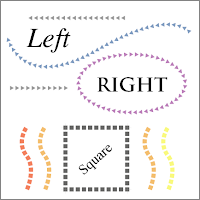Since when have the Dismalcrats
acted like they stand for something principled? OK, we're aware of FDR's New Deal, and Jimmy Carter's stance on human rights, tho he's the one for whom the Carter Doctrine on the Middle East is named:
Let our position be absolutely clear: An attempt by any outside force to gain control of the Persian Gulf region will be regarded as an assault on the vital interests of the United States of America, and such an assault will be repelled by any means necessary, including military force. - State of the Union Address on January 23, 1980
George Bush can claim that he was simply maintaining consistency with a long-held US doctrine voiced by President Carter.
I highlight the word "acted" in my opening sentence, initially thinking of the synonym "to behave", as in "actions are louder than words." But, there's another use of the word as in, "Ronald Reagan was an actor" .... he
acted... as in "make-believe" both in the movies and the White House.
That's what we're seeing with Democrats, and Republicans and the establishment in general, be they conservative or liberal. It's becoming part of the fabric of American culture, instilled by our TV culture. They say lots of nice sounding phrases like "Healthy Forest legislation", and "we're getting tough on Wall Street," and they even act the part.
Another example that comes to mind was an early sign of how Obama would
act if he became President... there's that pesky word again. You might recalled the incident during the last presidential campaign when Obama advisor Austin Gouldsby was caught telling corporations not to worry about Obama's statements regarding renegotiating the North American Free Trade Agreement (NAFTA); Gouldsby assured the business establishment that Obama was just rattling the saber on NAFTA to gain popular support.
So, we've had half-measures from the Obama administration at best and sell-outs to the powers on Wall Street and the healthcare industry as well. Is it any wonder why there is an "enthusiasm gap" in the upcoming elections?










